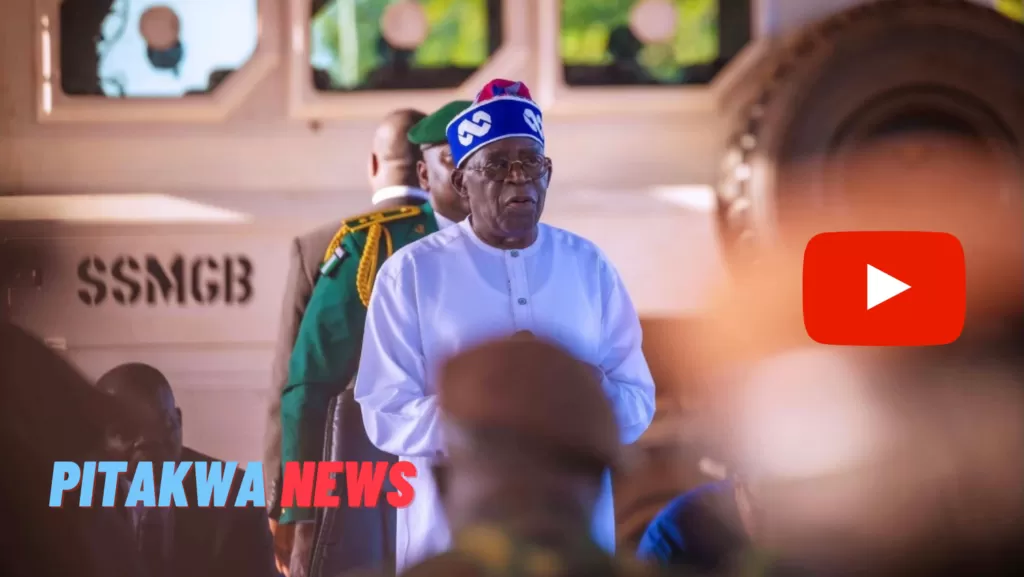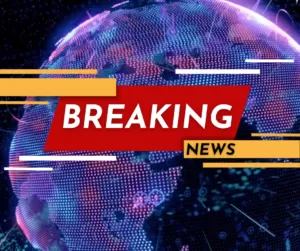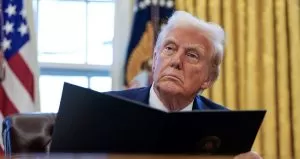Coup: ECOWAS to restore order in Niger, says Tinubu

The Economic Community of West African States, on Wednesday, said it would deploy “all means necessary” to restore constitutional order in the Republic of Niger amid coup fears.
This formed the outcome of a closed-door meeting between Nigeria’s President, Bola Tinubu, who also serves as Chairman of the ECOWAS Authority of Heads of State and Government and his Beninois counterpart, Patrice Talon, at the Aso Rock Presidential Villa, Abuja.
“Talon is here to review and consult on the issues with our neighbour. And the military misbehaviours and that is what he’s here for. He’s going there now. He’s on his way to the Niger Republic,” Tinubu told State House Correspondents.
On Wednesday afternoon, local media reported that Nigerien President, Mohamed Bazoum, is being detained by members of the Presidential Guard, who have been given an “ultimatum” by the army.
Disgruntled members of the guard had cordoned off access to the president’s residence and offices and, after talks broke down, “refused to release the president.”
Bazoum was democratically elected in 2021, taking the helm of the landlocked West African state in April of that year.
“The situation is serious enough”, Talon told State House Correspondents after the meeting.
He said as a border nation to Nigeria and Benin, both leaders take the developments “seriously” and must “act quickly.”
Talon said the regional bloc would spare no effort to restore order to the troubled state with mediation efforts beginning Wednesday evening.
He explained, “I believe that all means will be used, if necessary, to restore constitutional order in Niger. But the ideal would be for everything to happen in peace and harmony.
“So, as the president has committed, the mediation actions will be reinforced this very evening so that this situation can be settled in peace between brothers because even when what is not acceptable is done, it is necessary that in peace, we can correct this.
“This is our first option and we think it will be a success.”
Earlier, President Tinubu described the development as “unpleasant,” insisting that Nigeria will do all within its power to plant and nurture democracy in West Africa.
“We are closely monitoring the situation and developments in Niger and we will do everything within our powers to ensure democracy is firmly planted, nurtured, well rooted and thrives in our region,” Tinubu said in a statement signed by his Special Adviser on Special Duties, Communications and Strategy, Dele Alake.
The President said it should be clear to all players in the Republic of Niger that the leadership of the ECOWAS Region and all lovers of democracy around the world “will not tolerate any situation that incapacitates the democratically-elected government of the country.”
Tinubu revealed that he is in close consultation with other regional leaders, and collectively, they shall protect Niger’s “hard-earned democracy in line with the universally acceptable principle of constitutionalism.”
He said, “As the Chairperson of ECOWAS Authority of Heads of State and Government, I state without equivocation that Nigeria stands firmly with the elected government in Niger and equally conveys the absolute resolve of leaders in our sub-region that we shall not waiver or flinch on our stand to defend and preserve constitutional order.”
Wednesday’s development might be the fifth attempt to topple a sitting West African Head of State in under four years.
In May 2021, the administration of Malian President, Bah N’daw, fell to a military coup led by Vice President Assimi Goïta.
Four months later, Guinean President, Alpha Condé, was ousted from power by the country’s special forces led by its commander, Mamady Doumbouya.
In January 2022, the Burkinabe military deposed the administration of President Roch Kaboré. In September of that year, Burkina Faso suffered its second coup when the head of an artillery unit of the country’s Armed Forces, Captain Ibrahim Traoré, declared himself head of state.
Neighbouring Guinea-Bissau nearly suffered a similar fate when Umaro Embaló’s administration was almost toppled in February 2022.
Findings by The PUNCH revealed at least 48 coup d’êtas and coup attempts on African administrations and regimes since 2010.
Since 2015, 24 coups and coup attempts have been reportedly carried out, leading to unstable regimes and destabilised African economies.
The affected States include Burundi, Burkina Faso, Central African Republic, Libya, The Gambia, Zimbabwe, Equatorial Guinea, Gabon, Sudan, Ethiopia, Mali, Tunisia, Guinea, Guinea Bissau, Mali and Sao Tome and Principe.






